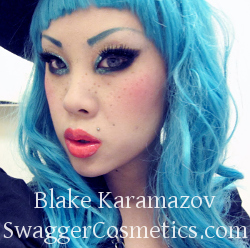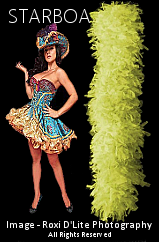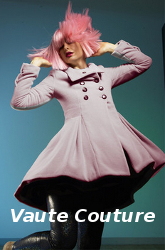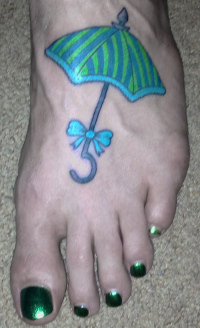Clothing & Textiles
Coats, Shirts, Slacks, Jeans, Sweaters, Dresses, Suits, etc.
All new clothing in the USA has a tag which lists fiber content -
when shopping, you'll want to review this tag for any
kind of apparel, including scarves, hats, gloves, jackets, ties and costumes, as well as pants, shirts, dresses and skirts. You'll also
want to view fiber content tags for other textile products like rugs, furniture, curtains and bedding
(especially pillows).
It's not too challenging to avoid
animal-derived textiles in normal shopping as long as you are
careful - there are many products made wholly from plant fibers or
synthetic materials.
Some examples of textiles by source:
- Plant-derived fabrics: abacá, bamboo, cotton, flax, hemp, jute, linen, lyocell (e.g., Tencel), modal
- Synthetic fabrics: acetate, acrylic, microfiber (polypropylene), nylon, polyester, polyurethane (PU, "pleather"), polyvinyl chloride (PVC), rayon, spandex
- Indeterminate origin fabrics: felt (animal hair or acrylic), lace (linen, silk or cotton), satin (silk, nylon or polyester), tulle netting (silk, nylon or rayon), velvet (silk, rayon, mohair, wool or cotton).
- Animals' skins or coats used as fabric: angora, cashmere, down, feathers, fur, leather, mohair, silk, snakeskin, wool
Vegan Fashion/Couture:
- Brave Gentleman - NYC-based vegan menswear, such as "future-wool" suits.
- Delikate Rayne - cruelty-free women's contemporary luxury line of dresses, tops, skirts and shorts, all vegan, worker- and eco-friendly (made in USA)
Regular clothes which are vegan-friendly can be found most anywhere, just read the tags. Most jeans, T-shirts and sweatshirts are mde of cotton (but watch out for leather tags on jeans).
You may wish to look for eco-friendly vegan wear online (you can find shops like Alternative Apparel which appear to be mostly or all-vegan ethically made simple cotton clothing, similar to American Apparel, but without the bad reputation).
Footwear
Shoes, Boots, Sneakers, Pumps, Sandals, Slippers, etc.
Footwear is more challenging to shop for than clothing, because
most shoes contain some leather (even if just the sole or
tongue), and those which are leather-free and commonly available may be undesirable (e.g., uncomfortable, non-breathable or made of environmentally-unfriendly materials like PVC).
For quality vegan footwear, it is best to buy from a vegan specialty store; otherwise, always read the label and make sure they are made only from plant (e.g., hemp) or sythetic (e.g., "man-made") materials.
Some online vegan footwear stores:
- Ahimsa - shoes, moderately expensive, based in Brazil, English site
- avesu Vegan Shoes - shoes, accessories, based in Germany, English site
- Beyond Skin - luxury designer women's shoes and a few purses, pricey, based in UK, I think, but this is USA site
- BHAVA - luxury women's shoes (seems to be all "Italian vegan leather"), based NYC, USA, I think
- Brave Gentleman - classic men's shoes (mostly formal shoes) and menswear, pricey, based in NYC, U.S.A.
- Call It Spring - contemporary shoes for men & women; this Canadian chain went all-vegan in 2019; they may have a physical store in a mall near you.
- Ethical Wares - excellent selection (funky shoes, work boots, dance shoes, etc.), nice people, U.K.
- Moo Shoes - various shoes (mostly European), bags and more (storefronts in NYC & LA), U.S.A.
- Noah Shoes - fair-labor Italian shoes (incl. one of the best Men's collections I've seen), expensive, Italy - site in Italian
- Sudo Shoes - various shoes, bags and more, U.S.A.
- Vegan Chic - huge selection (various brands, mostly high-end), Los Angeles, CA, U.S.A.
- Veganline - small shoe selection, decent quality, good prices, nice people U.K.
- Vegetarian Shoes - medium selection (a bit stodgy), decent quality, a bit pricey, U.K.
- Wills London - good selection of men's dress shoes, moderate selection of women's shoes, pricey, U.S.A. site (London based) - I've found their sizing too narrow and long for my (average men's width) feet
If those don't meet your needs, you might try searching online
for "vegan shoes" + your location, or you can
try the following stores, which stock both leather and
non-leather* options:
Lulu's,
Payless, sports/athletic footwear stores or brands (e.g., Foot Locker,
Merrel),
Snaz75.com
(fetish/costume, incl. unusual sizes) or Zappos.com (cheap options, with full refund returns).
*FYI, non-leather shoes, unless explicitly marked vegan, may sometimes be made with animal-based glue.
If you're looking for specialty shoes (e.g., rock climbing, roller skating, dancing), they may be a bit harder to find, but they're out there - see my Miscellaneous section for some suggestions.
Body & Hair Care
Soap, Shampoo, Moisturizer, Toothpaste, Perfume, etc.
If you took chemistry in college, you may have learned that soap is made from mixing oil / fat (e.g., lard) with an alkaline solution (i.e., lye). Additionally, many perfumes are derived from animal sources. Since many soaps, shampoos, toothpaste and other cleansers are made from animal fat (sometimes listed as "glycerin") or with animal-based perfumes, make sure your cleansing product has no animal ingredients or is marked "vegan" or before purchasing (note: vegetable glycerin is safe). Shampoos and hair-repair products often contain keratin (an animal protein) or silk (a type/source of keratin), so keep an eye out for that as well.
There are also non-cleansing body care products which may include animal ingredients (e.g., lanolin) or animal-derived perfumes, such as toner, moisturizer, shaving cream, conditioner, massage oil or any other sort of lotion, so be sure to check the labels.
Aside from the ingredients themselves, many body and hair care products are unnecessarily tested on animals, so you will also want to look for a label indicating "cruelty-free" or "not tested on animals" (keep in mind, however, that such labels do not refer to ingredients, which may still include animal parts).
Many vegan personal care items may be found at health food stores or Whole Foods, often with "vegan" on the label, or you may find some items at regular drugstores and beauty supply stores. Many "natural" soaps of the kind found at farmer's markets and fairs are made from vegetable glycerin and one or two plant-based essential oils, so are usually acceptable for hand and shower soap (read labels or ask owner/salesperson to confirm).
Here are some commercial brands which I believe to be all or mostly vegan (feel free to research online or contact companies to confirm - I always recommend reading labels as product formulations [and parent companies] can change over time):
- 100% Pure - cleanser, shower gel, shampoo, cosmetics, etc.
- Abba - high-end color protective shampoo, conditioner, etc. (most, but not all Vegan, look for label on bottle)
- Acure Organics - soap, lip balm, cleanser, shampoo, etc.
- Alba Botanica - moisturizer, hair gel, sunscreen, cleansers, etc.
- Aubrey Organics - cleanser, moisturizer, sunscreen, etc.
- Desert Essence - toothpaste, deodorant, mouthwash, face scrub pads, lotion, tea tree oil
- Dr. Bronner's - various flavors of "all-in-one" castille (vegetable) soaps (and also worker profit-sharing and social/environmental activism)
- JĀSÖN Natural - toothpaste, makeup remover, soap, shaving cream, conditioner, etc.
- Kiss My Face - soap, cleansers, shaving cream, shampoo, lip balm, etc.
- Manic Panic - fun, temporary hair colors & bleach (there are other vegan temporary color companies, but they are the original)
- Nature's Gate - shampoo, soap, sunscreen, toothpaste, etc.
- Original Sprout - sunscreen, hair products, baby skin & hair products.
Note: Original Sprout mostly vegan, but baby hair balm contains lanolin.
- No. 4 - high-performance hair products (styling foam, hair-gel, shampoo, conditioner, etc.)
- NYL - skin care products (makeup remover, body balm, etc.)
- Pureology - high-end shampoo, conditioner and a few other hair products for color-treated hair (my favorite - for my fine, mostly-straight, colored hair).
Note: Pureology is owned by L'Oreal, but Pureology website says they are 100% vegan.
- Tom's of Maine - soap, toothpaste, deodorant, mouthwash, floss
- Verb - lightly scented (non-overpowering) high end hair products, including curl creme
Note: Most, but not all products are vegan, see their FAQ.
- Or check out online vegan stores (see "personal" or "body" or "skin" care sections):
Cosmetics
Eyeliner, Eyeshadow, Mascara, Foundation, Powder, Blush, Lipstick, Lipgloss
Cosmetics frequently include insect-derived ingredients, such as carmine (crushed beetles used for red pigment in a wide variety of items)
and beeswax (used for shape/form in lipstick and some other "creme" type makeup products), occasionally lanolin (sheep-grease), as well as
many cryptic chemical ingredients, which may or may not be animal-based or unsafe (e.g., formaldehyde).
Many makeup brushes are made from animal fur, such as squirrel, mink, horse and sable; instead, look for synthetic hair brushes.
Eyeshadow and eyeliner can be made of chemical cocktails including animal-derived pigments or binding agents
(e.g., gelatin, carmine) or from pure mineral extracts (vegan sources), but nailpolish and lipstick are usually
non-vegan (most contain carmine, lanolin or other animal ingredients). Most commercial nailpolish removers contain many added ingredients,
such as perfume and gelatin - you'll want to find pure acetate nailpolish remover
(available at beauty supply stores) which has no added animal products. If you like false eyelashes, you're in luck as most eyelashes are synthetic (just avoid feathers) and most eyelash adhesives are latex-based (from rubber trees).
Aside from the ingredients themselves, many cosmetics are unnecessarily tested on animals, so you will also want to look for a label
indicating "cruelty-free" or "not tested on animals" (keep in mind, however, that such labels refer only to testing, not ingredients, which may still
include animal parts).
Some cosmetic companies which offer vegan make-up:

- Axiology - all-vegan creamy lipstick and lip-crayon
- Beauty Without Cruelty - all-vegan lipstick, foundation, eyeshadow, etc. (natural/neutral colors)
- Black Moon Cosmetics - all-vegan lipstick and eyeshadow/eyeliner (most liquid and "black metal" colors)
- Concrete Minerals - all-vegan eyeshadow, nailpolish and lip tint (vibrant, dark & traditional colors)
- Inika Organic - all-vegan non-toxic cosmetics (natural/neutral colors)
- Gabriel Cosmetics / ZuZu - all-vegan lipstick, eyeshadow, foundation, etc. (natural/neutral colors)
- KVD Vegan Beauty - all-vegan makeup (glam eyeshadow, lipgloss, blush, glitter, lashes), was Kat Von D makeup before converting to vegan around 2016 ("performer" makeup)
- LunatiCK Cosmetic Labs - all-vegan (& talc-free) eyeshadow, contouring, lipstick (goth/glam colors)
- Medusa's Makeup - all-vegan lip-gloss, eyedust, makeup remover and other vegan cosmetics (didn't start out all-vegan, but has converted; may want to double-check the "vegan" tag for your product).
- Necromancy Cosmetica - all-vegan lip-stick, hand-made in Puerto Rico.
- PHB Ethical Beauty - all-vegan cosmetics, skin care, hair care
- Your local health-food/herbal store may also have a small "eco-beauty" section which should include some vegan options (check the labels).
Or you can try the following not-vegan companies which have vegan options (just be sure to check ingredients or for "vegan" indicator):
bareMinerals,
Lush,
Tarte,
Urban Decay.
Vitamins & Supplements
Vitamins A, D, etc.
Some vitamins are commonly derived from animals, such as vitamin D from lanolin (sheep-grease) or vitamin A from fish oil. Supplements like protein shakes may contain any number of animal ingredients, including whey or mealworms (gross, but true). For this reason, it is important to find "vegan" vitamins and supplements (which are sometimes labeled "100% vegetarian" but you may wish to check with manufacturer to ensure no cow's milk, eggs or other animal ingredients were used as sources) and also to confirm the source of vitamins in "fortified" foods (e.g., breakfast cereals) or other products (e.g., moisturizers).
Generally speaking, Vitamin "D3" is derived from animals, while "D2" is plant/fungus
derived (see vegan nutrition section). Some companies which offer vegan vitamins or supplements (not all are vegan, always read the label):

- Deva - all-vegan vitamins and supplements
- NuTru - all-vegan vitamins and supplements
- Vegan Proteins - "one-stop vegan supplement shop"
- Vega - plant-based supplements with focus on athletics
- NOW - many vegan vitamins and supplements (can search on "vegan")
- Vegetarian Vitamins - vegan/vegetarian vitamins and supplements
- Rainbow Light - some (but not all) vitamins/supplements are vegan, look for "VeganGuard"
- A simple guide to vegan supplementing (by Legion)
- Online vegan stores (see "vitamins" or "health" or "supplements" sections):
Intimacy
Condoms, Lubricants & Erotic Toys
Many sex-related items are created using animals. Luckily, there are alternatives & most vegan intimacy products also eco-conscious and socially progressive.
Latex condoms are usually manufactured using casein, so for the sexually active [non-lesbians], it's important to find vegan ones and be prepared. I can usually find one or two vegan & eco/ethical brands like Sustain at Whole Foods and usually can find something (Avanti or Sir Richard's) at CVS and there are plenty of options online.
Lubricant, like moisturizers, can contain any number of animal-derived ingredients and so can toys of the vanilla or kink variety. If you need lubricant or toys, you'll want to make sure those are vegan and body-safe.
- Avanti Real Feel - non-latex condom by Durex (this and other non-latex condoms are generally without casein)
- Glyde - vegan latex condoms (USA site); these are prevalent in vegan-friendly shops, but honestly my least favorite option.
- OrganicLoven - formerly vegan shop (now sells leather & feather) with environmentally-friendly (vegan?) lubricants, massage oils, vegan condoms, cleansers, etc.
Legal Drugs
Alcohol, Medicine, Tobacco, Marijuana
Alcohol manufacturers are not required to reveal ingredients, so
you'll need to do some research before purchasing and consuming such
beverages. Most "straight" alcohol products (e.g., beer, wine,
non-flavored spirits) do not contain animal ingredients, but they
may have been "fined" using animal products like isinglass (fish
bladder-derived) or filtered with charcoal (bone-derived charcoal)
which are removed from the final product. Some alcoholic beverages
(e.g., Bailey's Irish Creme and some pre-mixed drinks like Bloody
Mary's) and various "mixers" may contain animal ingredients, so it's
best to know what's in your drink when ordering. Barnivore.com is a great all-around vegan online reference (with accompanying smartphone app).
The Food Empowerment Project Wine list is a great resource for wines (as these are both worker and animal-friendly).
Per government regulation, all traditional medicine (prescription
and non-prescription) in the United States must first go through
"trials" including animal testing before the FDA will approve it for
legal sale, so unfortunately no regular medicines are cruelty-free.
However, many of us suffer from medical conditions that require treatment and here are my suggestions for minimizing your use of animals:
- Try to find a plant-based herbal medicine that meets your needs. Most herbal formulas are ancient medicine which are holistic plant-based remedies (many prescription drugs are derived from these) and are not FDA approved, therefore not tested on animals. You'll want to avoid herbal medicines in capsule form when the capsules are made of gelatin (usually any herb will be available in dry form or liquid tincture and sometimes in plant-based [cellulose] capsules) Note, however, that some animal-derived ancient treatments are sometimes lumped in with "herbal" solutions, so always do your research first.
- For most traditional drugs, you can choose the "generic" version, which is cheaper and is essentially identical. These formulas are copied from the original drug formula (a few years after the original is released), so I figure they're not directly profiting from any animal-testing. If multiple different types of drugs [different active ingredients] are available for your condition, try to determine the ingredients in each and (if possible) avoid ones that contain animail ingredients in favor of the synthetic or plant-based ones.
- For chronic conditions, make sure you are getting optimal nutrition, sufficient exercise and that your environment is free of unnecessary stress and contaminents which might be contributing to your condition (e.g., dust can contribute to asthma or insomnia).
- Try to research the ingredients of what you're taking - if you can determine that the formula contains animal ingredients, try to find an alternative formula or avoid taking if condition is tolerable and non-life-threatening.
Most people know that tobacco products are detrimental to your
health (damaging mouth/throut/lung cells, destroying skin elasticity
and increasing risk of cancer and heart disease), but what most
people do not know is that cigarettes and other tobacco products
almost always contain additives which may include animal-derived ingredients such as urea, beeswax and butter. If you
must use tobacco as a vegan, please be sure to use a product with no
additives (I believe American Spirit is one such brand).
Marijuna enjoys a quasi-legal status in most of the United States (and in a few other countries/regions).
It is my understanding that smoking marijuana likely contains similar
negative health outcomes as tobacco-smoking does, but it hasn't been sufficiently studied
due to the long (& racist) prohibition by Western countries.
Needless to say, pure marijuna is a plant-product and vegan by default.
However, marijuna edibles and other "mixed" products which are not just plant/bud may not be
(and often are not) vegan, as they could contain animal products like butter or gelatin, so be sure to check
ingredients before purchasing.
As illegal recreational drugs are unregulated, you cannot generally know what the ingredients are (especially what it has been "cut" with, so it's
recommended to avoid such products for your health and for the
animals. Pure plant or fungal drugs (e.g., peyote, opium and mushshrooms) may be
vegan-appropriate, so use your best judgement.
Media
Books, Films, Non-Profits & Websites
Below are some resources that provide various perspectives on veganism and animal rights. I may not agree with all content (see Ethics section for my personal perspective), but I encourage reading, viewing and researching widely, then critically considering all approaches to find your own best fit.
- Blogs
- Books
- Documentaries & Films
- Food Justice & Vegan Organizations
- News/Podcasts/Misc.
- Sanctuaries
Miscellaneous
Charities, Sports, Tattoos, etc.
Art supplies may also contain animal ingredients,
including brushes made from animal hair, some glues, certain color
pigments (in paints) as well as photographic (chemical) film, which
is made from gelatin. It's best to do research before buying new instruments or supplies.
Charities, unless a charity is a vegan one, some of its efforts may go towards oppressive activities such as animal testing
(e.g., medical/disease-focused charities) or providing animal-based foods (e.g., hunger or disaster relief organizations). If you wish to support a mainstream
charity but also not harm animals, you might donate vegan supplies to them or specify that your donations be used for a specific animal-free purpose
(e.g., this donation must be used only for water supplies). However, it is easiest and probably most effective to donate to an explicitly vegan organization, see
Media section above, in particular, the Food Justice & Vegan Organizations or Sanctuaries lists.
Costumes sometimes contain animal parts, especially feathers (from slaughtered birds). Always read the labels for premade costumes and
check out StarBoa (pictured) for all your faux-feathered boa needs. Alternatively, making your
own vegan costume gear from plant-based fabrics can be fun.
Handbags, Clutches, Purses may contain wool, leather, animal-based felt, or even animal-based "faux-fur" (which in countries with loose
regulations can include racoon or dog fur). Cloth bags are fairly easy to find, but if you want high-quality leather-like bags, you should try vegan retailers
(most vegan shoe stores carry some bags). Some high-end vegan bag designers are Cykochik,
FruitenVeg, Gunas,
Jill Milan and Matt & Nat.
Jobs will often involve some level of animal exploitation (by the company) and we all need to earn a living wage, so I'd only recommend you try to minimize your involvement with animal exploitation while using your skills and talents to make your preferred life. If animal use is the core business of your company, you might wish to consider looking for jobs at other companies, when you are able to. If are driven to have a 99% vegan career, you can seek work for a vegan organization/company and a few general resources are:
Musical instruments may contain animal ingredients. For example,
drum heads are often made with leather, stringed instrument bows
made with horse hair, acoustic guitars made with hide-glue, leather
guitar straps.
Sports equipment, for use in athletics, dance or other
physical performance may contain animal materials, such as leather. For example:
baseball gloves, ice skates, footballs,
baseballs, rollerskates, toe-guards, archery gloves, soccer cleats.
If you research online, you can generally find alternatives, such as
non-leather rollerskates (Wicked Skatewear(looks like most of their skates are vegan), I believe Reidell has some non-leather skates), baseball gloves (Carpenter Trade synthetic gloves), jazz
tapshoes (So Danca has both leather and non-leather options), ballet
slippers (Cynthia King Dance Studio) or ballroom dance shoes
(Ethical Wares Dance Shoes).

Tattoos can include animal ingredients every step of the way, from the stencil to ink (pigment & carrier fluid) to the
skin cleaning and aftercare products; Surprisingly, this potentially exploitative form of artistic expression isn't talked about much in the vegan community;
some vegans who carefully read ingredients on food labels don't even enquire about the ingredients used to color their skin.
Various online postings state that pigments can contain bone char, shellac, gelatin or other animal extractions, while others seem to think all modern
pigments are mineral or plant-based. Unfortunately, I couldn't find a definitive reference on inks (although
tattoo ink chemistry mentions "bone black" as potential source of
black pigment) & the ink manufacturers don't reveal ingredients. What is clear is that your stencil transfer paper could contain lanolin, the carrier fluid for your ink
could contain animal glycerin, and your skin cleaning and aftercare products may contain fish-oil and sheep-grease [e.g., A&D ointment].
So if you're
planning to get a tattoo, I strongly recommend going to a vegan-friendly tattoo artist who work with you to ensure stencil, ink and skincare products are
all vegan (and/or will allow you to provide your own stencil paper and skincare product). If the artist mixes their own ink, you'll want to make sure s/he uses
a non-animal-based carrier (e.g., rubbing alcohol or vegetable glycerin). Even though many pigments may be vegan by default, I'd recommend going with a confirmed
vegan ink brand (e.g., Stable ink). For after care of your tattoo, be sure to use vegan soap and moisturizer, as per the
Body Care guidelines above (note: the ubiquitous A+D Ointment is made from fish-oil [A] and sheep-grease [D]).
In general, when reading ingredients, you may want to consult the following list to determine whether a given ingredient is (or may
be) animal-derived: VeganPeace Ingredients & Products (you might
also consult wikipedia for information on a single ingredient). For
an interesting article on secret ingredients (including those
"natural flavorings" and secret additives in cigarettes), see "Food For Thought" by David Stipp (2003).






